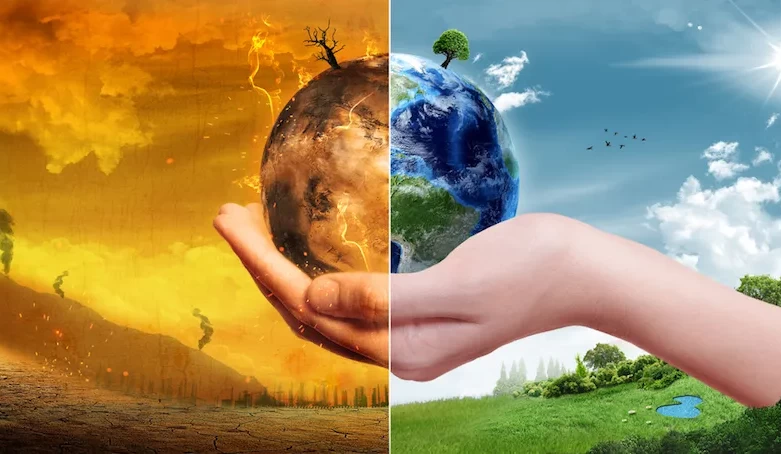Blog Details
- Home
- Blog Details

- 22 Jan, 2025
- By - Admin
The Past Decade of Climate Change in India: Challenges and Lessons
Extreme Weather Events
India has seen an increase in cyclones, floods, and heatwaves. Cyclones like Amphan (2020) and Fani (2019) caused severe damage in coastal states. Flash floods in Uttarakhand (2013) and Kerala (2018) displaced thousands, while heatwaves in 2019 claimed hundreds of lives.
Melting Glaciers and Water Crisis
Himalayan glaciers are receding rapidly, threatening water security for major rivers like the Ganges. Overextraction of groundwater and erratic rainfall have exacerbated the water crisis in states like Punjab and Rajasthan.
Agricultural Challenges
Unpredictable monsoons and extreme weather have led to crop failures, threatening food security and worsening farmer distress.
India’s Response
India has made significant strides in combating climate change:
Renewable Energy: Aiming for 500 GW of renewable capacity by 2030, with projects like the Bhadla Solar Park.
Afforestation: Initiatives like the Green India Mission aim to restore ecosystems.
Policy Measures: India ratified the Paris Agreement and pledged to reduce emissions intensity by 33-35% by 2030.
Conclusion
India’s climate journey underscores the urgency of addressing climate change while highlighting opportunities for resilience. Collective efforts and sustainable practices are essential to secure a better future.
- Share:
- Tags:
- Climate change in India, Extreme weather events, Cyclones in India, Floods and heatwaves, Renewable energy in India.
